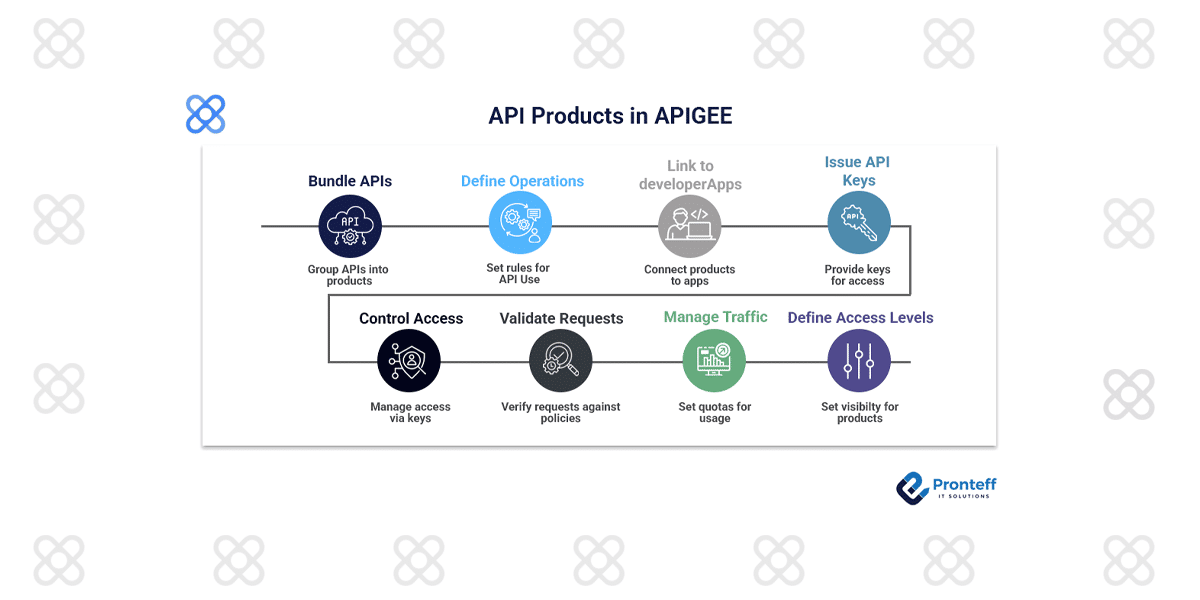API Products in Apigee
In this blog, we will learn what the API Products in Apigee.
When sharing APIs with developers, giving direct access to each individual API can be difficult to manage. Apigee solves this with API products—packages that group one or more APIs together, along with rules that define how they can be used. In simple terms, an API product is a structured bundle of APIs that helps you control access, usage, and security in a manageable way.
What is an API Product?
API products are like business plans, such as Basic, Premium, or Enterprise. They let you select which APIs to include, define which endpoints are accessible, and set usage limits, such as how many times the APIs can be called per day. Each product contains operations, which specify the API proxy, resource paths, allowed HTTP methods, and optional quotas. For instance, developers might only be allowed to perform GET requests on a /users path, with a limit of 1000 requests per day.
To access an API product, developers register their applications and link them to at least one product. Apigee generates a unique API key (consumer key) for the app, which is included with every request. API proxies use policies like VerifyAPIKey or OAuth to validate the key, check quotas, and confirm access. This ensures APIs are secure and usage is controlled.
Quotas help manage traffic and protect backend services by limiting requests over a specific period—for example, 100 requests per day for free users, 1000 for basic, and unlimited for premium users. Quotas can be applied at the product or operation level. API products also support access levels—public (available to all developers) or private/internal (restricted to specific teams or users).
Conclusion:
API products in Apigee provide a structured, secure, and efficient way to manage APIs. They control access, enforce usage limits, and make it simple for developers to consume APIs while keeping your services organized and protected.








